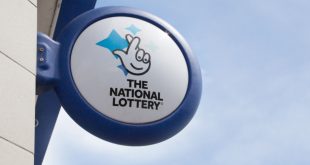Regulus Partners, the strategic consultancy focused on international gambling and related industries, takes a look at some key developments for the gambling industry in its ‘Winning Post’ column.
K: betting on horseracing – 2017-18 Levy, the last hurrah?
The GB Horserace Betting Levy Board reported an annual income of £95m in 2017/18. This represents a 46% increase on the previous scheme (with commercial top-ups) as all offshore operators were captured at a full rate. In the first year of full capture, this has allowed reserves to be replenished (by £21m to £46m), with distributions remaining broadly flat at £74m. The clear implication however is that in future years distributions (especially to Prize Money) can materially increase. The Levy’s yield and the (soon to be replaced) position it is in says a lot about the current state of betting on horseracing in Great Britain; it is nowhere near as bad as some stakeholders pretend, but it isn’t all good either.
First, the £95m yield triangulates to c. £950m of betting revenue (with some movement around deductions and the treatment of niche products). This provides further evidence that betting on GB horseracing is not in the state of decline that some commentators have long pretended (or, more dangerously, believed) it to be. Gambling Commission data has already demonstrated that the issue is not decline but channel shift (with many of the most vociferous critics of ‘traditional’ products actually just executing poorly on ‘modern’ channels and so failing to notice the volumes around them). The levy yield, unsurprisingly, points to the fact that GB racing remains at the core of GB customers’ horseracing betting (c. 85% across channels).
Second, the boost in revenue comes a year or so before the impact of the £2 FOBT decision. While reserves can be built up in the interim, the net hole in spending is still likely to be material, especially if the temptation to open the Levy taps sooner rather than later is met. While direct levy impact is not likely to be significant (according to our estimates), indirect impact of c. £50m over c. four years suggests that racing overall will need to grow by c. 10% pa to maintain overall income (including some benefit from online streaming). Herein lies the problem: over the last c. twenty years racing may have weathered many profound changes relatively better than the commentary would suggest, but it has not grown: indeed, in real terms that actually does amount to a declining business.
Third, perhaps one of the reasons for relative and real-terms decline can be elucidated by an interesting line in the HBLB’s Annual Report: “The total prize money is split between the Flat and Jump codes in proportion to how much Levy is actually generated by each code. For 2017, the split was set at 60% flat and 40% jump, based upon the 2015 betting performance, the last period for which data was available to the Board”. Two things jump out to us here, leaving us rather flat. Decisions based upon old data will become increasingly poor decisions – the politics of data sharing could keep armies of lawyers busy; the economics of failure to share is putting armies of punters off the product, in our view. Equally, distribution by outcome has the attraction of simplicity and apparent fairness, but it is nowhere near as effective as focussing on input variables: funding distribution is based upon what betting is given, not necessarily what betting customers want (and by this we mean the underlying customer, not what a selection of betting companies might think / tell racing what the customer wants).
Betting on GB horseracing has flatlined despite significant boosts to racing’s revenue in the last six years (Levy, media rights, sponsorship, racecourse performance). While some of this is because of long lead times (creating foals and turning them into racehorses) and structural complexities (changing the fixture list beyond tinkering would require Alexandrine unknotting prowess: see below), we believe it also strongly points to the fact that the levers of input and output are not well understood or connected. Without this understanding, more money does not mean more productivity (though less money for a prolonged period would almost certainly mean significant disruption). This understanding will require data-driven cooperation with bookmakers (as institutions, not just appointed representatives) – especially those which are good online. With it, racing can hope to grow overall betting revenue based on generating a stronger betting product (win – win). Without it, racing will add to betting’s impending (if channel-specific) crisis and may well face its own (which would hurt all betting channels, not just beleaguered LBOs: lose-lose).
UK: In Parliament – Eagle Eyes Club Machines
Parliament finally slipped into its Summer Recess this week – but not without a few parting shots at gambling. The year to date has been the industry’s busiest in Parliament for decade. We witnessed a conclusion of sorts to the DCMS review of gaming machines and social responsibility but also a broadening in scope of political concerns – evidenced by the highest number of Parliamentary Questions on gambling since 2008.
The period was also notable for the heightened interest in gambling from Conservative Parliamentarians in both Houses. Lord Chadlington has been the most active Tory in the period and this week he let loose one final round before the summer break, asking what assessment the Department of Health had made of “the case for additional research to be undertaken about the residual neurological impact of rapid highs and lows from gambling, particularly in connection with the long-term effects on mental health”.
The Government it seems has no plans to commission such research. As Lord O’Shaughnessy admitted in response, the DoH is at a somewhat more rudimentary level – with plans to commission research into the effectiveness of interventions on reducing the incidence of problem gambling. Given the pressure that gambling operators are under to evaluate the efficacy of their safer gambling programme, this research could prove enormously helpful – if the political climate permits them to gain involvement.
When Parliament returns in September, it is likely we will see the publication of the Labour Party’s review of gambling and mental health. There were further signs this week on what to expect with the shadow gambling minister, Dr Rosena Allin-Khan (Lab, Toting) asking what steps the DCMS is taking “to limit children’s exposure to gambling adverts during live sporting events”. This followed Sir Mark Hendrick’s (Lab, Preston) PQ last Friday regarding the existence of DCMS “discussions with the Football Association to discourage football clubs from accepting betting companies as their shirt sponsor” (the Government of course has had no sch discussions).
Sponsorship and advertising are almost certain to feature in the Labour Party review – and these issues may be joined (somewhat improbably) by the siting of B4 machines (£2 max stake, £400 max prize). This week, Maria Eagle (Lab, Garston & Halewood) asked no fewer than five questions about the presence of B4 machines in premises outside the Gambling Commission’s jurisdiction. The B4 is very much a poor relation to the B3 machine, which helps to explain why there were only 247 of them in the country at last count. They are however – unlike the B3 – permitted within private clubs (e.g. miners welfare clubs).
Earlier this year, Eagle asked about the presence of FOBTs in staff canteens and seems to have a keen interest in this rather abstruse area of gambling regulation. Her focus on B4 machines indicates that she may be aware of an issue with current regulations – and that she is laying a trap for the Government on the subject. Then again, she may just be ill-informed – time will tell.
August offers the prospect of a breather for gambling (at least in terms of political scrutiny if not media attention). It is also a chance to take stock and prepare for what is likely to be a very busy (and possibly painful) second half in which we can expect to find out more about the DCMS’s plans for FOBTs and lotteries, HM Treasury’s ambitions for remote gaming duty, Labour’s target areas for gambling in general and Gambling Commission proposals for regulatory tightening online and across Category B machines.
UK: gambling duty – good news for FOBT operators?
Betfred has won the first leg of its claim for VAT to be repaid on FOBTs for the period 2005 to 31 January 2013 (when VAT + AMLD was replaced by MGD). The claim is thought to be worth c. £100m to Betfred, but the £1.9bn total mooted for the industry is likely to be c. 20% overstated due to input reclaims – it nevertheless represents a big figure, especially since the lion’s share will be collected by two operators; there is also potential significant lookthrough for other machine operators during this period from a Linneweber claim perspective.
So far gambling has done rather well in VAT reclaims through the Linneweber route, with a score of 2:1 against the government at the Court of Appeal level. However, we would be sceptical of this case adding to the industry’s tally. While cautioning we are not tax experts, Linneweber in substance is about fiscal neutrality – similar products cannot be treated differently from a VAT perspective given EU jurisdiction on VAT. In some cases (most notoriously bingo), VAT was very patchily applied, but there was a clear case that ‘bingo was bingo’.
Equally in Sportech’s case if spot the ball were a game of chance, then it would have been VAT exept for the period, as other games of chance were not subject to VAT. The fungibility of FOBTs to separately licensed products is more moot (as many differences as similarities can arguably be found in online or electronic roulette) and there is no case that overall tax treatment was punitive in the period (not that Linneweber is concerned with this). Higher courts may therefore find plenty to side with a grateful government, in our view, while the fiscal risk to the wider industry of a FOBT victory should not be discounted…
UK: horseracing – striking the balance
The BHA has released the fixture list for 2019. While the list largely remains unaltered in terms of numbers, there are some material positive changes for horsemen (and women) – with winter floodlit fixtures finishing earlier (20:30 final race) and longer breaks between the end and beginning of the respective ‘seasons’ for jumps, flat and all-weather. The list also provides good news for the betting industry with the introduction of a further 15 floodlit Autumn events, designed to ‘provide greater continuity of product’ through the afternoon and in to the evening.
While it can be hard to please all parties within the horseracing and betting community (the BHA knows this only too well), these changes to the way racing is planned show a willingness for betting and racing to work together – a plan which will benefit all involved and ensure continuous, fair funding and better conditions for those who provide the end product. A bigger question, however, is the extent to which tweaking can optimise a fixture list designed to provide racing from lunch time to evening most days of the week as well as providing for horsemen’s needs in a consumer and cost environment which is changing with increasing speed. For this, a much deeper understanding of what makes horsemen (and women!) participate and what makes bettors bet will be critical for the long-term relevance of the sport (with both groups often taken for granted in annual stakeholder pissing contests), in our view.
Belgium: online regulation– tightening the licensing straight-jacket
Belgium has so far enjoyed mixed success with domestic regulation, with one of the key competitive hurdles, online product links to landbased licences, being partially overcome by operators stitching together multiple licences to provide a consolidated offer (betting, casino, arcade). This practice has now been deemed illegal by Belgium’s Constitutional Court, forcing all operators to have separate sites for each licence and presumably making shared wallets impossible.
This is likely to make the black market even more attractive to harder players who wish to move about product suites freely or even play products simultaneously, likely most impacting betting operators with integrated gaming offers (eg, Kindred, GVC). The ruling could also create an offer which confuses the mass market, impeding growth as well as increasing leakage to black market operators.
Belgium, like Switzerland, Poland and France, as well as initially Spain and Italy, has adopted a highly cautious approach to regulating online gambling and its success has been ‘mixed’ (though by no means a complete failure from a channelling perspective – certainly not compared to its Southern neighbour). Operator claims that competition with the black market has been further eroded are no doubt true, but equally they are unlikely to be persuasive to policy makers. Until gambling deploys positive consumer messages and meaningful harm prevention measures to persuade, it is likely to be toward the bottom of the priority list – and left grappling with ill thought out legislation in a critical mass of jurisdictions, in our view.
South Africa: Gambling regulation – National Gambling Amendment Bill to be introduced
The Minister of Trade and Industry, Dr Rob Davies, has issued a “notice of intention” to introduce the National Gambling Amendment Bill 2018 into Parliament. The bill, which has been subject of much discussion for nearly two years, proposes significant reforms likely to be perceived to be a big threat to operators, who are expected to strongly resist the proposals.
The reforms include: the National Gambling Board being repositioned as the National Gambling Regulator; increasing the powers of the gambling inspector; imposing restrictions on gambling advertising; strengthening casino / machine / bingo regulation; and prohibiting dog racing and betting thereon. Other than dogs, the product set most at risk seems to be the ever-controversial ‘secondary lotteries’, since oversite will be moved to the National Lottery Commission, which sees the product as unequal (and possibly even unlawful) competition. Since these products are a core staple of many provincial betting operators, significant disruption (likely even a ban) of this product could be terminal for many businesses in the space.
This is an early stage in the process, but the Minister has set out his stall. Eyes will now turn to see how effective the industry lobby can be in influencing the proposals (and probably in deciding which of the least unpalatable provisions it might be prepared to live with as a trade-off). If it is not successful in doing that, then the new law may prove to be an existential threat to a material number of operators.
China: lottery market– big numbers reminder
The Finance Ministry has reported that sales for China’s two main lotteries grew by 20% to US$36bn in H118, led by the Sports Lottery which grew 36% to US$20bn, largely driven by the World Cup. The China Sports Lottery’s payout ratio is 65% and the Welfare Lottery’s is similar (with a broader product range), meaning revenue for the period stood at c. US$13bn. Annualised revenue for China’s lotteries are therefore about the same size as the entire online B2C sports betting market globally (ie, excluding agents) and probably took more money on the World Cup than all online B2C businesses put together…
Global: Sports integrity – Italian footballer banned for WhatsApp messages; ESSA releases Q2 18 report
Parma striker Emanuele Calaio has been banned for two years (and fined €20,000) for match-fixing, and his club has been deducted five points for the 2018-19 Serie A season. Italy’s National Federal Court found that Calaio (an ex-Spezia player), had sent “suspicious messages” by WhatsApp to two of his former team-mates before Spezia played Parma, which were deemed to influence the match by “eliciting a reduced effort” from those Spezia players. Parma won the match 2-0 to secure promotion back to Serie A. Despite the court’s finding, it does not appear that the two Spezia players have faced any charges.
Elsewhere in sports betting integrity, ESSA has published its Q2 18 report, revealing a year-on-year increase in betting alerts from 53 (Q2 17) to 62 (Q2 18). Within that total are 44 alerts on tennis (31 in the same period last year), and alerts from eight sports in total (five in Q2 17). Alerts are not, on their own, evidence of corrupt activity, and an increase in alerts might be just as likely to be indicative of greater operator vigilance as it is of more corruption occurring. However, all stakeholders should be mindful of the need to maintain the former given the continuing risk of the latter.
Global: M&A watch – Dover Downs / Twin River; Gamenet / GoldBet; Penn National / Pinnacle; Playtech / Snaitech
Dover Downs Gaming & Entertainment Inc and Twin River Worldwide Holdings have announced that they have entered a definitive merger agreement, subject to regulatory approval
Gamenet has announced the acquisition of Goldbet for €265m (€240m upfront, €25m deferred and contingent). The completion of the acquisition is expected before the end of 2018.
Penn National Gaming stated in its Q2 earnings announcement that it remains on track to complete its $2.8 billion purchase of Pinnacle Entertainment. The buyout of Pinnacle has been approved by eight state gaming regulatory bodies and shareholders of both companies but remains subject to a Federal Trade Commission process considering potential anti-trust matters. Penn expects the deal – which will make it the largest U.S. regional gaming operator, with 41 properties in 20 jurisdictions – to complete before the end of the year.
Playtech has announced that, following its recent mandatory takeover offer, it now owns approximately 96.5% of the total issued share capital of Snaitech. It will now initiate the necessary steps for the transfer of the remaining approximately 3.5% minority shareholdings. The holders of those shares subject to the squeeze out will receive cash consideration equal to €2.19 per share.









